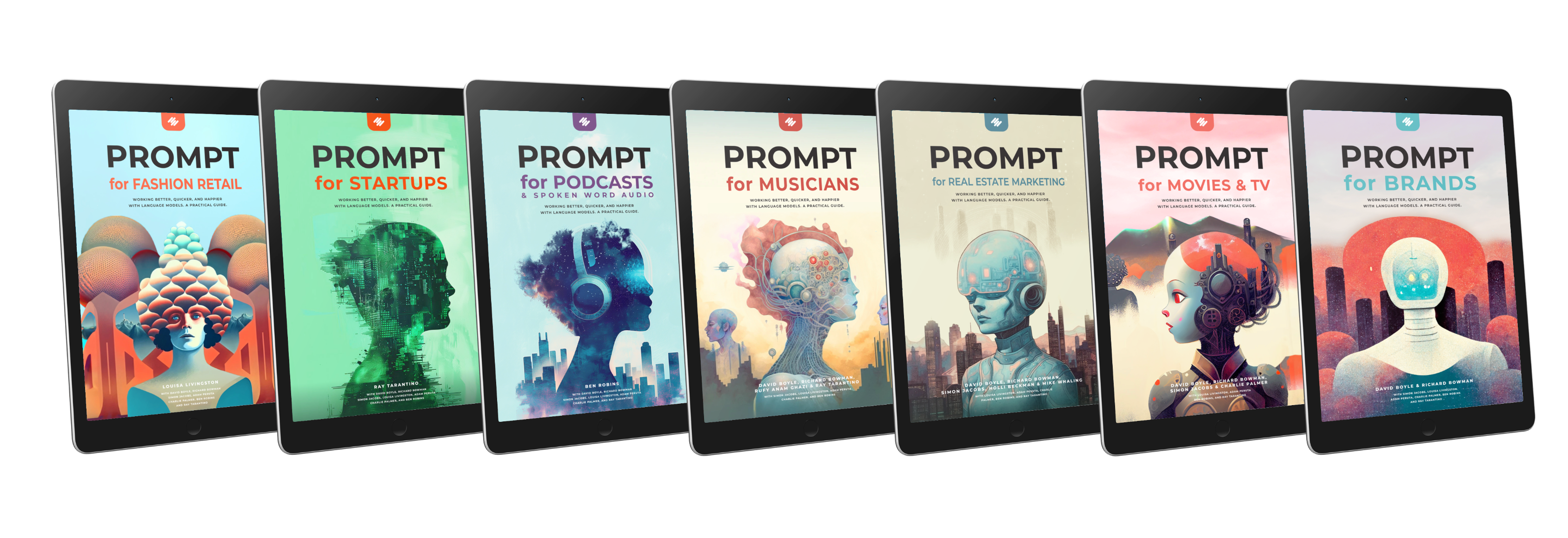In our work helping people use large language models (LLMs) like ChatGPT to revolutionise how they think and communicate, two distinct types of people are emerging: The Elevators and The Artisans. They’ve always been there. In every change process I’ve ever led.
The Elevators are those who eagerly embrace the power of process / technology / automation / AI to uplift them and their creative potential. They therefore see LLMs as a catalyst for growth - a tool that can help them break free from repetitive tasks and mundane mental labor. Elevators are quick to adopt any useful new technology - they are always seeking ways to elevate their thinking and output. They see that, by harnessing AI for the heavy lifting, they can save time and mental energy for higher-level, more impactful work. Or time with their families. Or partying. Whichever they choose.
On the other hand, The Artisans are those who prefer a more traditional, hands-on approach to their work. They are the fountain pen authors in a world of keyboards. Artisans value the craftsmanship and personal touch that comes with doing things the "old-fashioned" way. They find joy and meaning in the process of creation, not just the end result. For them, the journey is as important as the destination. They frankly don’t understand why others would want to do what they do more quickly!
As someone who has worked with both Elevators and Artisans, I have deep respect for both approaches. The Artisans remind us of the importance of quality, authenticity, and the human element in everything we do. They are the farmers' market craft vendors who pour their heart and soul into every product they create.
However, just as not all farmers can be farmers' market craft farmers if we want to feed the world, not everyone can afford to be an Artisan in the age of AI. The reality is that, in any industry with any competition, the use of tools like LLMs is not just critical, but absolutely essential to keep up and stay competitive. As a recent study by Boston Consulting Group (BCG) revealed, those who effectively harness the power of AI can expect to see a staggering 40% increase in their productivity and a 25% boost in their revenues. The writing is on the wall: if you're not leveraging LLMs to augment your capabilities, you're not just falling behind - you're practically inviting your competitors to leapfrog you. Even your less skilled competitors will be able to surpass your abilities by embracing these game-changing tools. In a world where AI is the great equalizer, the choice is stark: elevate or stagnate. The Artisans who cling to the old ways risk being left in the dust, no matter how skilled they may be.
The key is to find the right balance between elevation and artisanship. Elevators should strive to use AI in a way that amplifies, rather than diminishes, their uniquely human capacities like creativity, empathy, and critical thinking. They should view LLMs as a launchpad, not a crutch, and always maintain a "trust but verify" approach to the outputs.
Artisans, on the other hand, should consider being open to selectively incorporating AI into their work where it can unburden them from drudgery and free them up to focus on the parts of their craft that truly require a human touch. They should view AI not as a threat to their way of life, but as a tool that can help them spend more time in the zone they most enjoy.
Ultimately, whether you're an Elevator or an Artisan, the rise of AI is an opportunity to reimagine what's possible in your work. By finding the right blend of technology and human touch, we can all create more value, more efficiently, and more joyfully than ever before. The key is to stay open-minded, adaptable, and true to your core strengths in the face of change.
